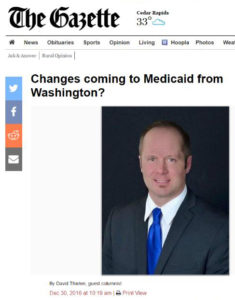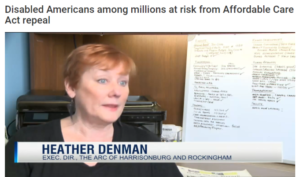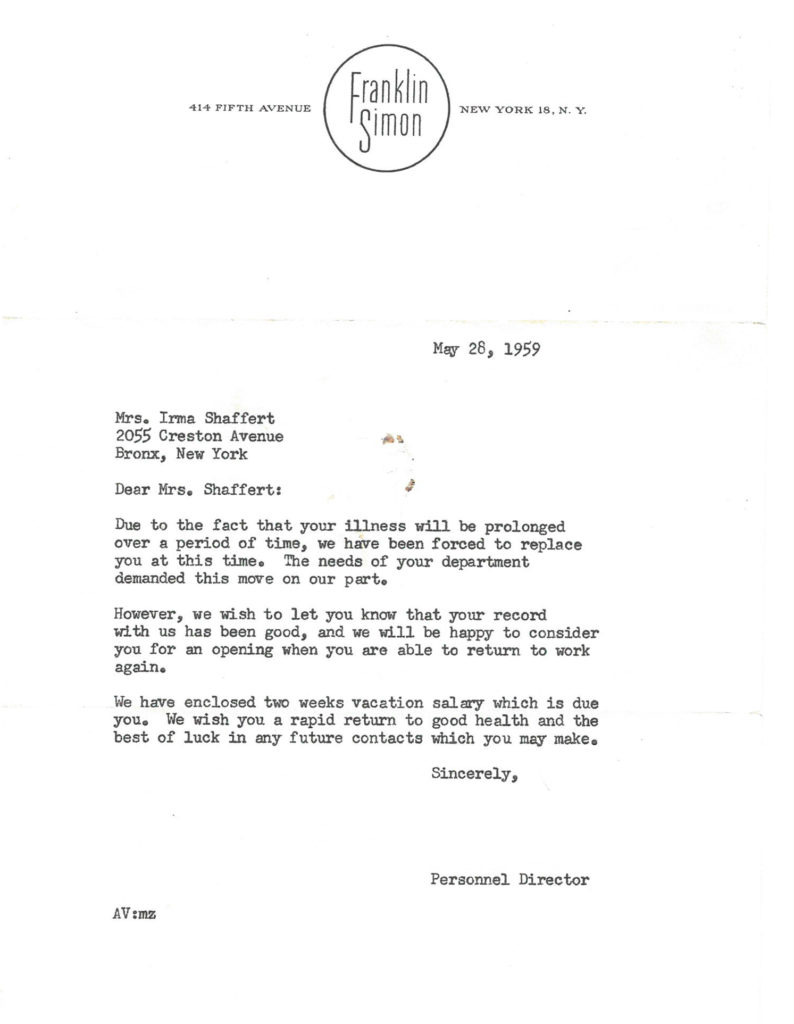By Neal A. Winston, CELA, Special Needs Alliance®
There are many factors to consider when a family member is seeking legal compensation for personal injuries, whether they result from medical malpractice, a car or workplace accident, or some other mishap. Given the supports that an individual with disabilities might need throughout life, even large sums can prove insufficient and must be carefully managed. Personal injury attorneys are often unaware of how a settlement can affect an individual’s eligibility for important public benefits, and families should ensure that a special needs attorney is consulted as early as possible during the course of their suit.
Liens and Set-Asides
Although personal injury awards are usually not taxable, there may be various liens against the settlement which must be satisfied before putting the money to other uses. If Medicaid, Medicare or, in some cases, private insurers have been paying for injury-related care that has been compensated as part of the settlement, they may need to be reimbursed.
In addition, if the individual is currently on Medicare, or is likely to become covered within 30 months, it may be necessary to create a Medicare Set-Aside (MSA) arrangement. While government guidelines are currently unclear, this can have implications for settlements of $25,000 or more, and legal counsel should be consulted.
Assessing Needs
A candid evaluation of the individual’s short- and long-term needs should guide the family in determining how to manage the remaining funds. Of major importance is whether or not means-tested public benefits such as Medicaid and Supplemental Security Income (SSI) will be required. If such programs will play a role, steps should be taken to ensure that settlement funds won’t disqualify the individual from such programs.
Depending on the size of the settlement and immediate needs, it may be possible to quickly “spend down” the award so that its effect on benefits is short-term. Home renovations to improve accessibility or purchase of a van are among many possibilities.
Another option for smaller settlements is placing up to $14,000 per year in an ABLE account for the individual. Funds held in such accounts are not considered when evaluating someone’s eligibility for Medicaid and SSI and can be used for a wide array of needs relating to the person’s disability. A person is limited to a single ABLE account, the disability must have begun before age 26, and the person must be receiving SSI or Social Security disability benefits, or have a doctor’s diagnosis of a disability meeting Social Security’s definition. If the account balance exceeds $100,000, SSI payments will be suspended, but Medicaid services continue. The maximum value of an ABLE account for Medicaid eligibility without SSI is the same as the maximum value of a 529 college savings account in the state in which the ABLE account is opened. Be aware that upon the beneficiary’s death, funds remaining in an ABLE account must be used to pay back Medicaid for any services rendered on the individual’s behalf after the ABLE account is created.
Larger settlements should be protected in a first party special needs trust (SNT) or a “pooled” SNT account. While individual first party trusts are administered by trustees chosen by the beneficiary, pooled SNTs are administered by nonprofit organizations.
Like an ABLE account, a first party SNT must reimburse Medicaid upon the beneficiary’s death. In some states, part or all of a pooled trust’s remaining funds revert to the administering nonprofit. Any funds left must then reimburse Medicaid before being available to other beneficiaries.
Distributions
Distributions from a first-party SNT are regulated and must be for the exclusive benefit of the individual for whom the trust has been created. If the money is used for food or shelter, it will reduce SSI payments up to a certain limit. The beneficiary cannot have any individual control over distributions from the trust.
Consideration can be given to reimbursement or compensation from the settlement to third parties in certain circumstances and using the proper procedure without causing benefit program penalties. For instance, a family may have run up significant debt while caring for the injured person. They may have resorted to credit cards or borrowed from friends and relatives. If someone gave up a paying job to care for the individual, they may need to be paid for their services to compensate them for lost pay from their regular work. These are all expenses that might properly be handled with settlement money and are best handled prior to creating the SNT. Money should be held in an escrow account, and payment should be made directly to those to whom the money is owed. Benefit programs have different rules, but most involve a written agreement or understanding reached before the services were rendered for the reimbursement or compensation in order to avoid penalties. Funds passing through parents’ hands could also affect eligibility for benefits. If the individual is a minor or an adult with a guardian or conservator, court approval may be required to make any reimbursement.
Even if government benefits are not a consideration, the beneficiary may need assistance managing the award, in which case a settlement protection trust similar to an SNT, can be established. If initially drafted properly, it may be converted to an SNT at a later date, if necessary.
Investments and Award Management
Trustees have discretion to make a wide range of investments. These might include traditional investment accounts, government insured or guaranteed accounts, life insurance or even real estate, either to produce income or to provide a residence for the beneficiary. Generally, the accounts should only invest in moderate or lower risk entities, and the funds should never be loaned to the trustee or family members. Many states have regulations that control investments and distributions from SNTs and other trusts.
For larger awards, structured payments for a portion of the settlement may be considered. This requires the defendant or his/her insurer to purchase, at the time of the settlement, an irrevocable annuity for the beneficiary that guarantees specific periodic or lump sum payments over an agreed-to period of time. If the timed payments will be large enough to affect eligibility for benefits, arrangements should be made for them to be paid into an SNT and/or an ABLE account.
On the plus side, structured payments are exempt from income tax and have scheduled payouts that ensure that money will continue to be available for a stated period. On the other hand, with interest rates at historic lows, the beneficiary may be locked into long-term dependence on low-performing investments.
Seek Advice
The options for handling a legal settlement are many, with interrelated implications. Families should ensure that a special needs attorney is part of their legal team to ensure that eligibility for means-tested benefits is not jeopardized and other disability-related issues are addressed.
The Special Needs Alliance (SNA)® is a national non-profit comprised of attorneys who assist individuals with special needs, their families, and the professionals who serve them. SNA is partnering with The Arc to provide educational resources, build public awareness, and advocate for policies on behalf of people with intellectual/developmental disabilities and their families. A free manual, “Administering a Special Needs Trust: A Handbook for Trustees,” can be downloaded from the SNA website.
 David Thielen, CEO of The Arc of East Central Iowa, had a guest column printed in the Iowa Gazette at the end of December regarding the effects of block granting Medicaid. He made the point that there are only three main levers when costs are shifted to cash-strapped states under a block grant – reducing eligibility, limiting services and supports, and cutting reimbursement to providers. Three weeks later, he followed up with another guest column published in the Cedar Rapids Gazette explaining the tangible benefits of the ACA to individuals with I/DD. These include improvements to long-term supports and services, tax credits to improve affordability of health insurance, banning discrimination based on pre-existing condition, ending annual and lifetime caps, and requiring plans to provide a comprehensive set of benefits including rehabilitative and habilitative services and devices.
David Thielen, CEO of The Arc of East Central Iowa, had a guest column printed in the Iowa Gazette at the end of December regarding the effects of block granting Medicaid. He made the point that there are only three main levers when costs are shifted to cash-strapped states under a block grant – reducing eligibility, limiting services and supports, and cutting reimbursement to providers. Three weeks later, he followed up with another guest column published in the Cedar Rapids Gazette explaining the tangible benefits of the ACA to individuals with I/DD. These include improvements to long-term supports and services, tax credits to improve affordability of health insurance, banning discrimination based on pre-existing condition, ending annual and lifetime caps, and requiring plans to provide a comprehensive set of benefits including rehabilitative and habilitative services and devices. Heather Denman, Executive Director of The Arc of Harrison and Rockingham, appeared in a segment on Virginia’s WHSV 3 to highlighted the ACA’s provisions on ending annual and lifetime caps on health insurance coverage, eliminating pre-existing condition discrimination, and providing funding for services outside of institutions. “The biggest piece is just taking something away and not having anything that is there to replace it and worrying about people who have preexisting conditions,” she stated.
Heather Denman, Executive Director of The Arc of Harrison and Rockingham, appeared in a segment on Virginia’s WHSV 3 to highlighted the ACA’s provisions on ending annual and lifetime caps on health insurance coverage, eliminating pre-existing condition discrimination, and providing funding for services outside of institutions. “The biggest piece is just taking something away and not having anything that is there to replace it and worrying about people who have preexisting conditions,” she stated.


 Brian Armour, PhD is an economist with the Centers for Disease Control and Prevention (CDC). He has spent over 15 years in health services research, including work on helping design the
Brian Armour, PhD is an economist with the Centers for Disease Control and Prevention (CDC). He has spent over 15 years in health services research, including work on helping design the 





